Search
Search Results

Definition
King's Evil
The king’s evil (from the Latin morbus regius meaning royal sickness), more commonly known as scrofula or medically tuberculous lymphadenitis, was a skin disease believed to be cured by the touch of the monarch as part of their inherited...

Article
The Plague at Athens, 430-427 BCE
In the second year of the Peloponnesian War, 430 BCE, an outbreak of plague erupted in Athens. The illness would persist throughout scattered parts of Greece and the eastern Mediterranean until finally dying out in 426 BCE. The origin of...

Definition
Germ Theory
The germ theory, which emerged in the late 19th century, demonstrated that microscopic germs caused most human infectious diseases. The germs involved included bacteria, viruses, fungi, protozoa, and prions. Louis Pasteur (1822-1895), a French...
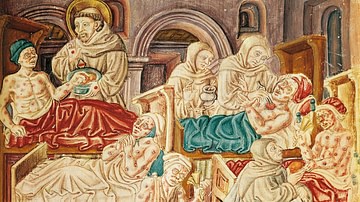
Article
Reactions to Plague in the Ancient & Medieval World
Throughout history, epidemics and pandemics of plague and other diseases have caused widespread panic and social disorder even, in some instances, when the people of one region were aware of a pervasive infection elsewhere. In the case of...

Definition
Egyptian Medicine
Medical practice in ancient Egypt was so advanced that many of their observations, policies, and commonplace procedures would not be surpassed in the west for centuries after the fall of Rome and their practices would inform both Greek and...
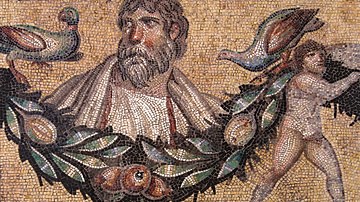
Article
Thucydides on the Plague of Athens: Text & Commentary
The Plague of Athens (429-426 BCE) struck the city, most likely, in 430 BCE before it was recognized as an epidemic and, before it was done, had claimed between 75,000-100,000 lives. Modern-day scholars believe it was most likely an outbreak...
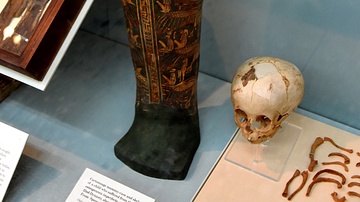
Image
Cartonnage Mummy Case & Skeleton of a Child with a Rare Bone Disease
The child suffered from a disease called osteogenesis imperfecta (brittle bone disease). His skull and part of his skeleton are on the left side of the cartonnage. The remains of this infant constitute the best preserved instance of the condition...
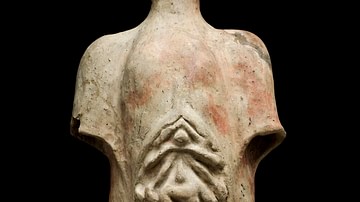
Definition
Antonine Plague
The Antonine Plague, sometimes referred to as the Plague of Galen, erupted in 165 CE, at the height of Roman power throughout the Mediterranean world during the reign of the last of the Five Good Emperors, Marcus Aurelius Antoninus (161-180...

Definition
Jacques Offenbach
Jacques Offenbach (1819-1880) was a composer of German birth who took French citizenship and became famous in Paris for his comic operettas, a genre he created, and for the more serious opera, The Tales of Hoffmann. A virtuoso cellist, conductor...
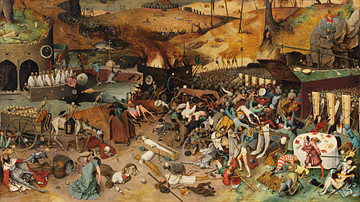
Article
Plague in the Ancient & Medieval World
The word 'plague', in defining a lethal epidemic, was coined by the physician Galen (l. 130-210 CE) who lived through the Antonine Plague (165 - c. 180/190 CE) but the disease was recorded long before in relating the affliction of the Plague...